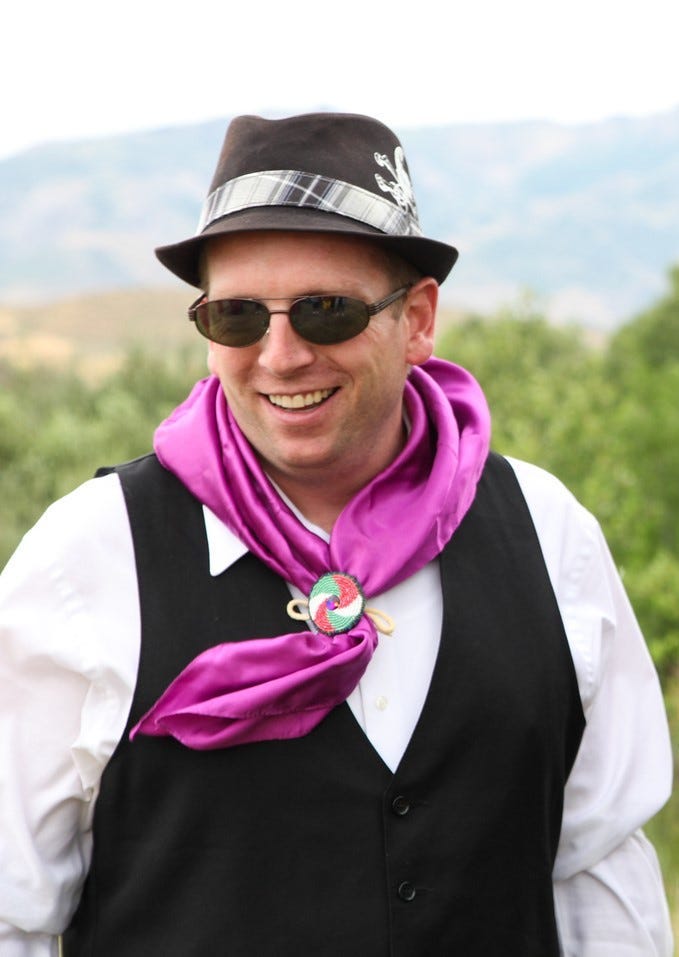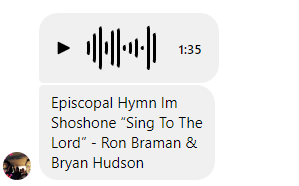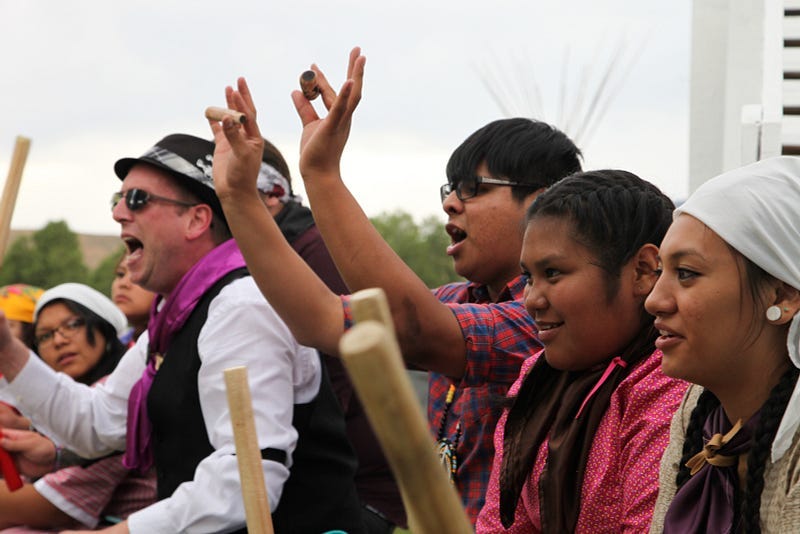Bittersweet Memories
Fourteen years ago, my dad, our friend Dave, and I loaded up my dad’s truck and Dave’s trailer and drove out to Salt Lake City from Ohio. I was starting my master’s of linguistics at the University of Utah that August. Unbeknownst to me, I would spend four years in Utah, which would forever change my life.
This change came, not from my course work or research, but from the relationships that I made with people who shared their knowledge, culture, and language with me. While working as the Project Manager of the Shoshoni Language Project — during my studies — I met many Shoshone and Goshute folks who taught me more about life and the world than most of my primary, secondary, and post-secondary education combined.
This past weekend, I spent time with some of these folks on the South Fork Indian Reservation, part of the Te-Moak Tribe of Western Shoshone Indians, in Lee, Nevada. We gathered to remember and celebrate one of the people who not only had a huge impact on my life, but the lives of many Shoshone and other Indigenous folks of the Great Basin, intermountain west, and Oregon: Bryan Jay Hudson, Jr. Bryan passed away last December unexpectedly. His loss was hard.
 Bryan Jay Hudson, Jr., South Fork, 2014 — Photo: Sarah Yeoman, 2014
Bryan Jay Hudson, Jr., South Fork, 2014 — Photo: Sarah Yeoman, 2014
Bryan was a force. He lit up the room when he walked in. He had more charisma than a bonfire on a cold night. There was never a person he wouldn’t talk to, unless they had done him dirty in some way. Bryan was a kindred spirit. His love of languages went far beyond my own passions, and I was always inspired and in awe of him when it came to talking about languages, linguistics, and their place in the cultures of people from all over the world.
Bryan was one of the youngest fluent Shoshone speakers, having learned it from hanging out with Shoshone Elders during the times he spent at his grandma’s. After graduating from the University of Oregon, Bryan went to teach English in Korea where he learned to speak Korean. He was able to break languages down to their very basic morphemes (smallest meaningful parts), which helped him to analyze and learn them deeper than your average language learner. His passion for sharing knowledge was contagious.
During my time at the Shoshoni Language Project, Bryan — among other things — taught a two-hour Shoshone course, five days a week, for six weeks, during the Shoshone/Goshute Youth Language Apprenticeship Program (SYLAP) that took place every summer. During SYLAP, we brought Shoshone and Goshute high school students to improve their knowledge of the Shoshone language and culture, as well as work as apprentices on various language-learning projects, such as a talking dictionary and children’s story books that were based on traditional Shoshone stories.
The students loved Bryan. His love and passion for languages was second to his love for music. Bryan was a gifted and talented singer. Over the years of his life, he had learned round dance songs, not only in Shoshone, but in other languages too, like Ute, Paiute, and Cree. He loved to drum and sing round dance songs, always explaining what the songs meant and the significance of the words and how language was used. Singing is a way for knowledge to be passed from one person to another and to honor the relations that the Shoshone have with the natural world.
Bryan also loved to play hand game. Hand game or naiyawi, as it is called in Shoshone, involves two teams sitting opposite each other, with one team hiding bones in their hands while singing and playing traditional instruments like drums, sticks, and shakers, and the other team trying to guess the bones’ positions until one team wins by collecting a set of ten sticks. Every summer Bryan loved teaching the SYLAP participants hand game songs, in addition to round dance songs.
For those who were close to Bryan, he would randomly send audio clips through text or Facebook Messenger. These clips were usually at random times of the day or night and were always of him singing. Bryan loved to share the songs that he learned with others, hoping they would learn them and keep the language and knowledge alive. When I learned of his passing, the first thing I thought of was “who is going to send me Shoshone songs at 3am?”

Bryan’s love for music — like his love for language — was multicultural. I can remember riding around with him in his car in Salt Lake City and he would pull out a CD that he had burned of some obscure Mongolian throat-singing group or some 1950s Japanese singer who sung about heartbreak, singing along with them. I always told him that he would be a really great world music teacher and that if he ever wanted to pursue a PhD, that is what he should study.
But Bryan was never going to pursue a PhD. He had found his calling. He was like a sponge that was filled with way too much water and no where to squeeze it out. His love for the Shoshone people, their language, and their culture fed his soul and sustained him. Bryan touched so many people’s lives and contributed so much toward the work that other Shoshone and non-Shoshone folks were doing for Shoshone language revitalization, all while navigating systems of white settler-colonialism that tried to tear him down at every turn.
In the 13 years that I knew Bryan, he played a significant role in helping me understand my part in perpetuating harm through my involvement with the Shoshoni Language Project and its impact on the Shoshone communities and individuals with whom we interacted. Without his wisdom, guidance, and grace, and that of many other Shoshone folks, I never would have been able begin my journey of deconstructing my whiteness nor to understand how I benefited from settler colonial systems of power.
Policies from these systems have worked tirelessly for centuries to erase the Indigenous people of Turtle Island. The end goal of imperialism is to erase Indigenous cultures, languages, and peoples. Bryan is a testament to the resilience of Indigenous peoples. I was reminded this weekend that even when everything feels bleak, there are people who come into our lives and they give us hope, joy, and most importantly, love.
 Bryan and SYLAP participants playing hand game. Photo by Sarah Yeoman, 2014
Bryan and SYLAP participants playing hand game. Photo by Sarah Yeoman, 2014